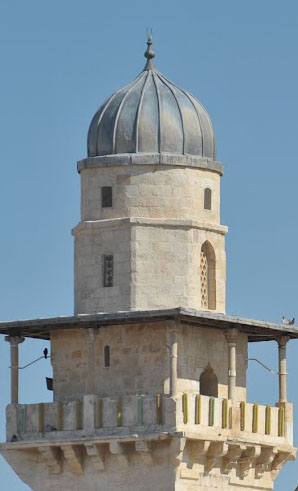 Catholicism and Islam are home to long traditions of philosophical, theological, and legal reflection on the nature and dignity of the human person and the value of scientific knowledge. The idea that men and women are children of God and therefore possess an inviolable dignity is a starting point for both traditions. The human person and the human body are divine gifts deserving of the unconditional respect. In both the Catholic and Muslim world view, God endowed human beings with reason as a means to communicate with one another, to strive after truth, and to care for His creation. Science and technology are recognized as positive in principle but can also, like all human enterprises, serve evil ends.
Catholicism and Islam are home to long traditions of philosophical, theological, and legal reflection on the nature and dignity of the human person and the value of scientific knowledge. The idea that men and women are children of God and therefore possess an inviolable dignity is a starting point for both traditions. The human person and the human body are divine gifts deserving of the unconditional respect. In both the Catholic and Muslim world view, God endowed human beings with reason as a means to communicate with one another, to strive after truth, and to care for His creation. Science and technology are recognized as positive in principle but can also, like all human enterprises, serve evil ends.
On this common foundation, the trajectories of Catholicism and Islam have diverged over the past 1,000 years. Through most of the Middle Ages, Islamic civilization was home to the most advanced scientific learning in the Aristotelian tradition. The level of Muslim theological, philosophical and legal reflection on science and the human person was approached by Catholic thinkers only by the late Middle Ages.
The scientific revolution in Early Modern Europe, enabled by the break with Aristotle and the turn to experimental methods, coincided with a relative decline of Islamic science. The European Enlightenment and subsequent industrial revolutions and colonial expansion heightened the scientific divide between the West and the Muslim world. While the Reformation and the onset of modernity undermined the cultural influence of Catholicism, the Church retained a tradition of moral philosophy that has served as a resource in responding to contemporary scientific and technological issues. Islamic legal, philosophical, and theological responses to those issues have lacked the strong institutional foundation and a common frame of reference enabled by the Church’s centralized structure.
Islamic Bioethics
Under the leadership of Professor Abdulaziz Sachedina (George Mason University), the Engaging Tradition project has centered on the further development of an Islamic bioethics. The project has extended and deepened efforts to develop an ethical discourse that moves beyond legal reasoning and seeks a common moral terrain with Catholicism and other religious and philosophical traditions.
Over the past several decades, Islamic thinkers have begun to address bioethics in systematic fashion, both within the West and in Muslim-majority countries including Iran and Saudi Arabia. But that reflection remains insufficiently developed and has not kept up with scientific and technological advances. As Ebrahim Moosa has noted, “Debates about the next generation of biotechnological issues including molecular genetics, stem cells and regenerative medical technologies arrive at a time when Muslim ethicists are barely coming to grips with an earlier generation of issues such as organ transplants and brain death.” There has been a proliferation of juridical rulings (fatwas) on a wide range of practical issues touching on medical practices, but not much in the way of systematic moral reasoning drawn from the tradition. As Moosa puts it, “What remains elusive is a critical and informed discourse about the philosophical grounds that underpin a contemporary Muslim moral and ethical vision.”
The goal, in Sachedina’s words, is to develop “a unique and yet universal spiritual and moral language that is needed to make a common cause of human concern the resolution of the universal problems ushered in by contemporary advancements in medicine and science as a whole.” At issue is not only whether Islamic jurisprudence can be integrated more fully into modernity, but also whether other traditions, religious and secular, are sufficiently flexible, adaptive and plural, so as to make a place for Islamic ethicists, philosophers and scientists who seek to enter the conversation on their own terms but also in a spirit of collaboration and dialogue.
